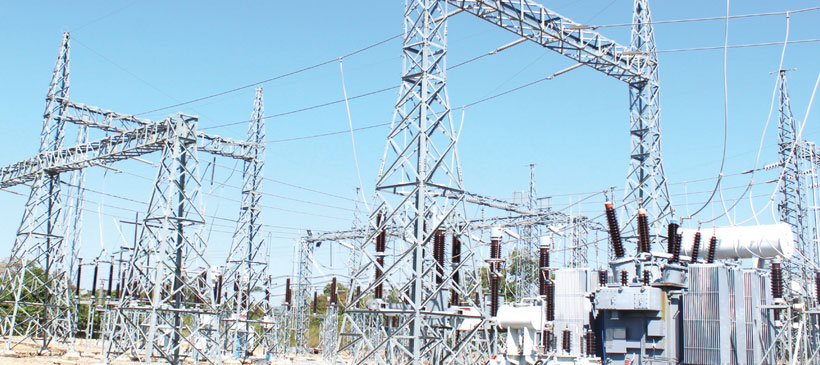

Malawi is listed among the world’s poorest countries with a litany of challenges it has frequently tried to tackle. Energy source shortage is one of them.
Meeting the ever rising electricity demand is no small feat in Malawi, where less than 12 percent of the population has access to electricity.
Lack of a reliable power supply is a major constraint to business and economic growth.
Over the years, the government has often embarked on projects and programmes to reverse the situation. Alas, there remains a yawning gap between supply and demand.
Low funding is outlined among major constraints towards improving the energy sector.
Additionally, where access to energy is deficient, other urgent human and societal needs are often not met, meaning that Malawian’s energy needs are competing with other priorities.
Malawi is heavily dependent on biomass fuels, the country mainly uses biomass energy (charcoal and firewood), and the availability of this resource base is diminishing mainly because woodlands and trees in agricultural areas are being cleared to start new farming land.
Statistics show that just between 1991 and 2008, about 669,000 hectares of woodlands were converted to farmland.
Diminishing standing stock is leading to gradual reduction of biomass that can be harvested.
Having this current availability of energy resources does not mean that there is actual production of energy wholly benefitting the country.
Based on this, it is apparent the country needs to advance greatly in the area of energy.
Notably, as early as 2004, four energy laws were created to ease operations in the sector. These are four Energy Acts aimed at addressing various aspects of the energy sector which are: Act 20, the Energy Regulation Act, which established Malawi Energy Regulatory Authority (Mera); Act 21, the Rural Electrification Act which laid the foundation for the formation of Rural Electrification Management Committee and Rural Electrification Fund.
Act 22, the Electricity Act which deals with electricity issues in terms of licencing, tariffs, generation, transmission, distribution, sales contracts and related issues; Act 23, the Liquid Fuels and Gas (Production and Supply) Act which handles issues related to liquid fuels and gas production in terms of licencing, safety, pricing, taxation, strategic reserves and related issues.
Vision 2020, the Millennium Development Goals and the National Energy Policy also stressed the importance of energy.
Even with the introduction of these however, the energy sector in Malawi has still not been able to meet all the requirements across the other sectors, which can be cited as one of the reasons the country has been slow to develop.
Further actions taken in the hopes to improve the energy sector included the un-bundling of the former electricity monopoly Electric Supply Commission of Malawi (Escom) to form the Electricity Generation Company of Malawi Limited (Egenco), which led to strong interests from investors to help the government reform this energy sector as well.
The Independent Power Producers (IPPs) have the opportunity to play a large role in improving the energy situation in the country, notably JCM with its detailed proposed plans of construction and the diesel generation company Aggreko (well-known for its expensive costs of operations).
There have been many other IPPs as well, who have, however, not held up their promises to deliver energy in the country
With the history of the public sector itself not having the required financial capacity to invest greatly in this sector, it would have made all the difference if all IPPs honoured their power purchase agreements, as this would have seen the country making remarkable progress.
So far, it has taken the country up until only last year to see its share of load shedding dramatically decrease, which the Minister of Energy Newton Kambala in a recent interview attributed the aforementioned as one of the reasons for this.
When it comes to IPPs however, Malawi has no clear, broadly supported, long-term strategy on the role it would like the private sector to play in the electricity sector.
The public sector would therefore still be the country’s leader in energy sector improvements and advancements.
Most recently, President Lazarus Chakwera promised that his administration would greatly improve the energy sector by adding 1000mw of electricity to the grid.
This is a bold statement, of course, but one worth speculating further, specifically in terms of what the country would have to gain from such an improvement.
Many of the proposed plants to be constructed are solar-based, this would help decrease the country’s reliance on sources such as the Shire River and other waterbodies that are simply not enough to supply the electricity the country needs.
Furthermore, these cost-effective energy efficiency improvements can have positive macroeconomic impacts such as boosting economic activity and often leading to increased employment.
Energy efficiency reduces the amount of energy needed to deliver services, such as mobility, lighting, heating and cooling. An abundance of energy could possibly lead to lower electric fees in the long run.
Lowering the cost of energy services frees up resources for households, businesses and the Government of Malawi itself.
Overall, Malawi stands to benefit from this proposed action plan.
The increase in energy supply would allow for more opportunities for Malawians, and it would be worthwhile to further imagine a future when the country’s heavy reliance on biomass dwindles.
The effects of this would be felt, however, in possible job losses by those in charcoal production and selling, on the other hand, as increase in energy development also leads to possible job creation as well.
All in all, Malawi comes from a dark past in terms of energy and, presently, it needs to push harder towards bringing light in each and every home.
Source: The Daily Times_July 1, 2021- By Yamikani Kachaje
